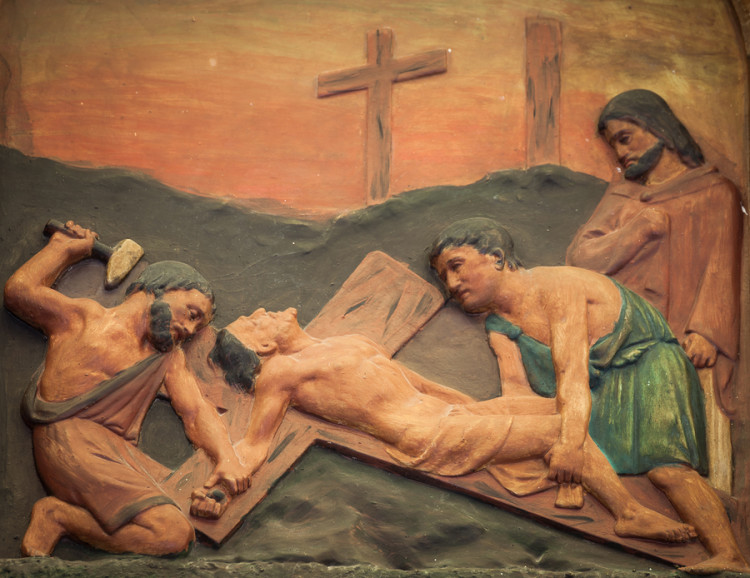Christmas Is Really About Gifts, Lights and Guests: Rick Hamlin

(Bloomberg View) —
When I taught Sunday school to a precocious bunch of fifth and sixth graders, I used to ask, “What about Christmas is not in the Bible?” They were quick to go for the obvious: Santa, the reindeer, Rudolph, stockings, the sleigh.
“OK,” I’d say, “but what about the three kings, the innkeeper, the stable and the animals? Where do they come from? Let’s look at the text.”
That’s not something most of my students would readily do unless there was the possibility of one-upping their parents. I liked to think that was possible after we were finished.
There are only two accounts of Jesus’s birth in the Bible. The first one is in the gospel of Matthew. Here were the magi or “wise men from the East” coming to Bethlehem to see the newborn king, but they are not called kings themselves. In fact, you can’t even tell how many of them there were. Maybe two wise men, maybe a dozen. Tradition has settled on the number three because they brought with them three gifts: gold, frankincense and myrrh.
Because they gave gifts, we give gifts. We even get gift-wrapping – their presents came in treasure chests. But their story is infused with something I’ve never seen dramatized in any Christmas pageant or shown in a department-store window. On their way to Bethlehem the wise men visited King Herod in Jerusalem, promising to tell him what they found. Warned in a dream not to return to him, they went home a different way, bypassing Jerusalem.
Herod, enraged and jealous, orders that every male child 2 years old or younger in and near Bethlehem be killed. The slaughter of the innocents, as it’s called. Did it really happen? There’s no telling. But the historical King Herod was truly monstrous and violent enough to do such a thing.
I hate to lose that edge to the Christmas story. We have witnessed horrible violence in our own times, and we know the dangers of capricious leaders. We yearn for peace badly right now.
Also from Matthew, we get the star the wise men followed, and for that reason we get our Christmas lights. They set the right mood, even if they appear as early as Halloween or Labor Day. The wise men were clearly foreigners, out-of-towners. Nice to think that this bit of good news was meant for them, too.
On to the gospel of Luke, the other source for our Christmas celebration. Here are the angels, the one who appeared to Mary and told her that she would have a baby and name him Jesus, and the ones who appeared to the shepherd. Here too is the baby in the manger, “wrapped in swaddling clothes.”
But note, there’s no stable mentioned or ox or ass mooning over the child. No drummer boy, no innkeeper.
What is shown in Luke – and this feels really crucial – is that the first people to be told about Jesus were shepherds “out in the field, keeping watch over their flock by night.” Shepherds were about as low on the totem pole as you could get back then. Their work was hard and lonely. They didn’t even have a decent place to sleep. And because of their contact with the sheep, they were dirty and probably considered ritually impure, unable to visit the temple.
But in Luke’s gospel, God’s messengers came to them, “bearing good news of great joy which will come to all people.” Not only did they get the news first but they were urged to see the newborn baby. They rushed off – did they leave anybody behind with the sheep? – and found Mary and Joseph and the baby in the manger.
So there is our celebration, much of it biblically inspired, even if not always footnoted. Angels, stars, gifts, singing (the angels must have sung), out-of-town guests, one holy family and the poorest of the poor being honored. That makes sense when you think of all the fundraising for worthy causes that goes on just now.
When somebody asks me about putting Christ into Christmas, I’m tempted to say he’s already there – perhaps keeping his presence anonymous. And when I get bent out of shape about all the shopping, I sing to myself that last haunting verse from “In the Bleak Midwinter,” the lyrics by 19th century poet Christina Rossetti. “What can I give Him, poor as I am? If I were a shepherd, I would bring a lamb; If I were a Wise Man, I would do my part; Yet what I can I give Him: give my heart.”
This column does not necessarily reflect the opinion of the editorial board or Bloomberg LP and its owners.







No Comment